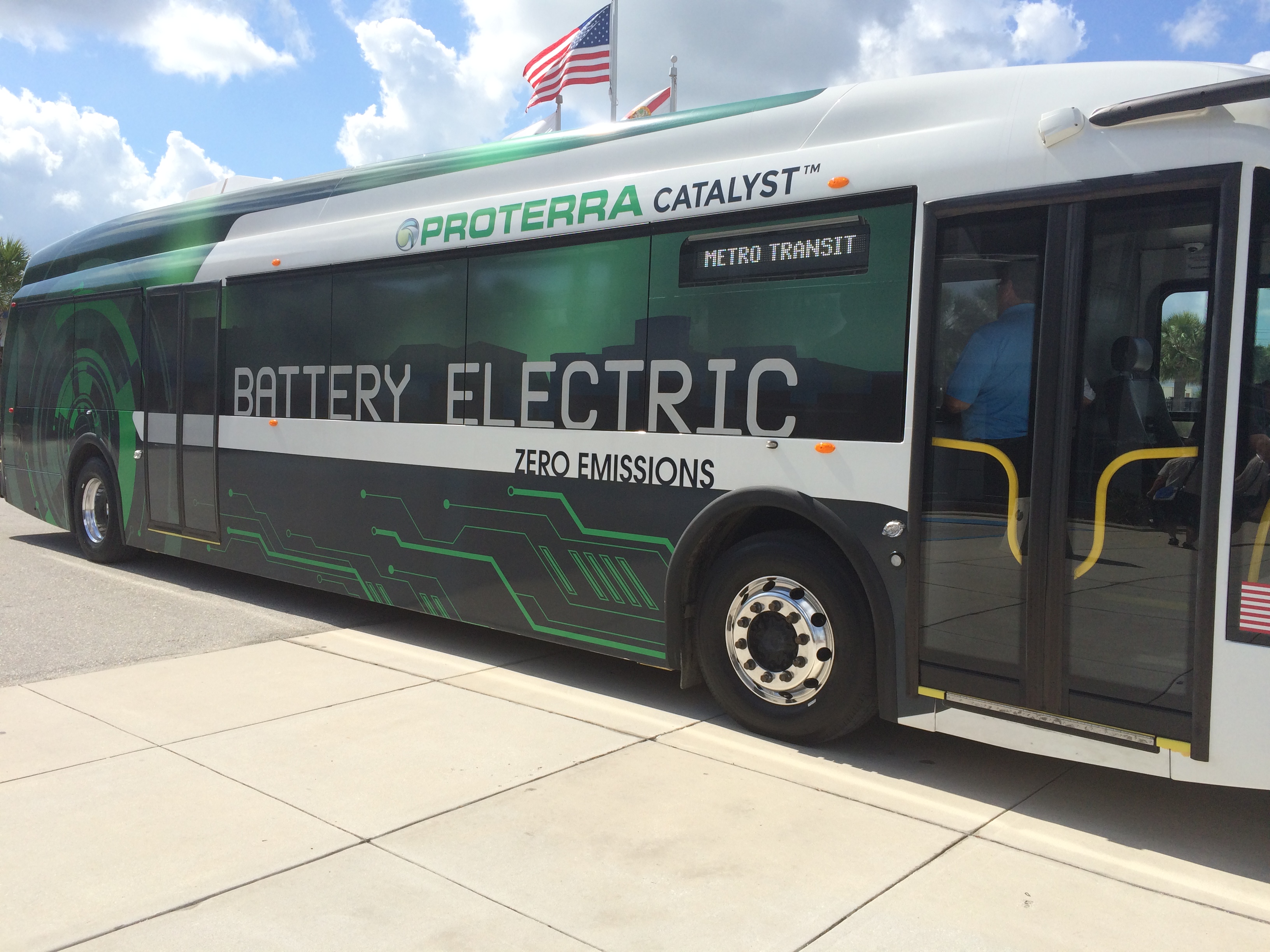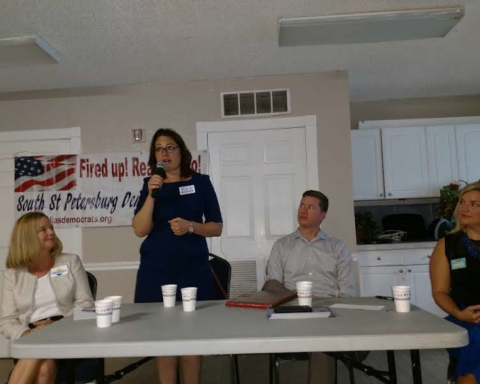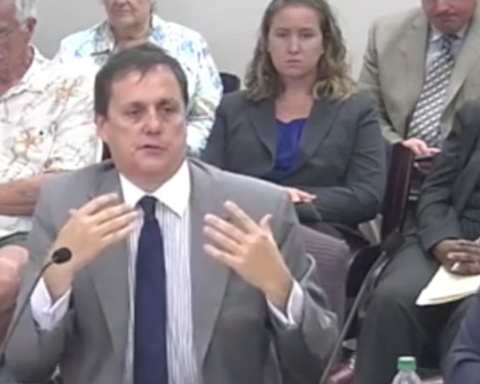An American company that builds all-electric transit buses rolled through Pinellas County Wednesday to court the Pinellas Suncoast Transit Authority.
PSTA employees hopped aboard Proterra’s all-electric 40-foot bus called Catalyst.
The bus doesn’t look all that different than others, but it sounds a whole lot quieter and doesn’t require a drop of diesel fuel. It runs solely on electricity.
Nearly a third of PSTA’s fleet currently runs diesel-hybrid buses. Those are the models the agency has been purchasing almost exclusively over the past several years. Those models run between $650,000 and $750,000. Strictly diesel buses are a little cheaper to buy at between $415,000 and $525,000.
The price tag for Proterra’s 40-foot all electric bus is only slightly higher than the hybrids, $799,000.
And according to Proterra, the lifetime savings of an all-electric bus versus a hybrid is about $250,000. That savings is split between saving on fuel and lower maintenance costs.
The electric buses are easier to maintain because they have 30 percent fewer parts than a traditional bus, regenerative braking means fewer brake repairs and the buses don’t require oil changes. Those efficiencies account for $135,000 of the overall savings.
But PSTA is in the midst of scraping pennies to avoid a looming budget shortfall that could force major spending cuts. Forking over more money for buses, even if there’s a lifetime net savings, may not be the most feasible thing.
“They’re talking about going from diesel hybrids, which is all they bought the last several years, to just diesel because the price tag is less,” said Sierra Club regional representative Phil Compton.
It’s a prime example of the theory that you have to spend money to save money and money is something PSTA is short on these days.
In that regard, the agency has no current intention of purchasing the all-electric buses. But that doesn’t mean the new high-tech design doesn’t make transit officials geek out a little.
“This bus, because it has basically much lower operating costs, the life cycle is a lower cost, so it’s certainly something we need to look at,” PSTA CEO Brad Miller said.
He acknowledged that footing the bill for buses with a higher price tag isn’t something the agency would be able to do on its own.
“In reality we probably would need to look at federal and state grants,” Miller said, noting most cities where electric buses run have used grant money to purchase them.
And Proterra founder Dale Hill recommends agencies start out with just 5-10 of the buses.
“Try those for a year or two and when they see that our fleet availability rate fleet wide is better than a diesel bus, when they see the maintenance costs are much lower, when they see their fuel bills, then they have the confidence to start expanding that fleet,” Hill said.
Hill founded Proterra in 2004.
“Our goal was to develop the bus of tomorrow,” he said.
And he may have done just that. In addition to having zero-emissions, meaning no tail pipe or exhaust, the buses are designed to be a more comfortable ride.
“When you look at the interior its designed almost like an aircraft, it’s light and airy, a lot off windows, high ceilings and it’s quiet,” said Proterra regional sales director Mike Hennessy.
The noise, or lack there of, is perhaps the most noticeable upgrade from more tradition diesel and diesel hybrids. A group of PSTA employees gathered around the bus just before it took off. Each marveled at how much noise the bus didn’t make.
“This bus is so quiet and so comfortable and to be on a full bus of people who are chatting and have someone talking from the front of the bus without having to use a megaphone like every other bus you’ve ever been on – it’s just very different,” the Sierra Club’s Compton said.
Compton plans to work with PSTA officials to encourage them to start buying up a few buses – six would be ideal, he said.
“For taxpayers, I think we can see the benefit of having the best bus there is, the cleanest bus there is, the most pleasant bus to ride on and that costs us all less so we can have more of these on the road than any other kind of bus,” Compton added.
And Miller said it would be a nice addition in some areas.
“Because it doesn’t have incredibly long distances it can run it wouldn’t be very effective from Gulfport to Tarpon Springs on U.S. 19,” he said. “But it would be great as a circulator in downtown St. Pete or in Clearwater Beach.”
The federal Environmental Protection Agency is considering changes to smog standards that could have an impact on areas like Pinellas County.
“Pinellas may very well have to get in compliance with that new rule,” Compton said. “That’s going to be the case nationwide so I think the market for these is just going to explode.”









